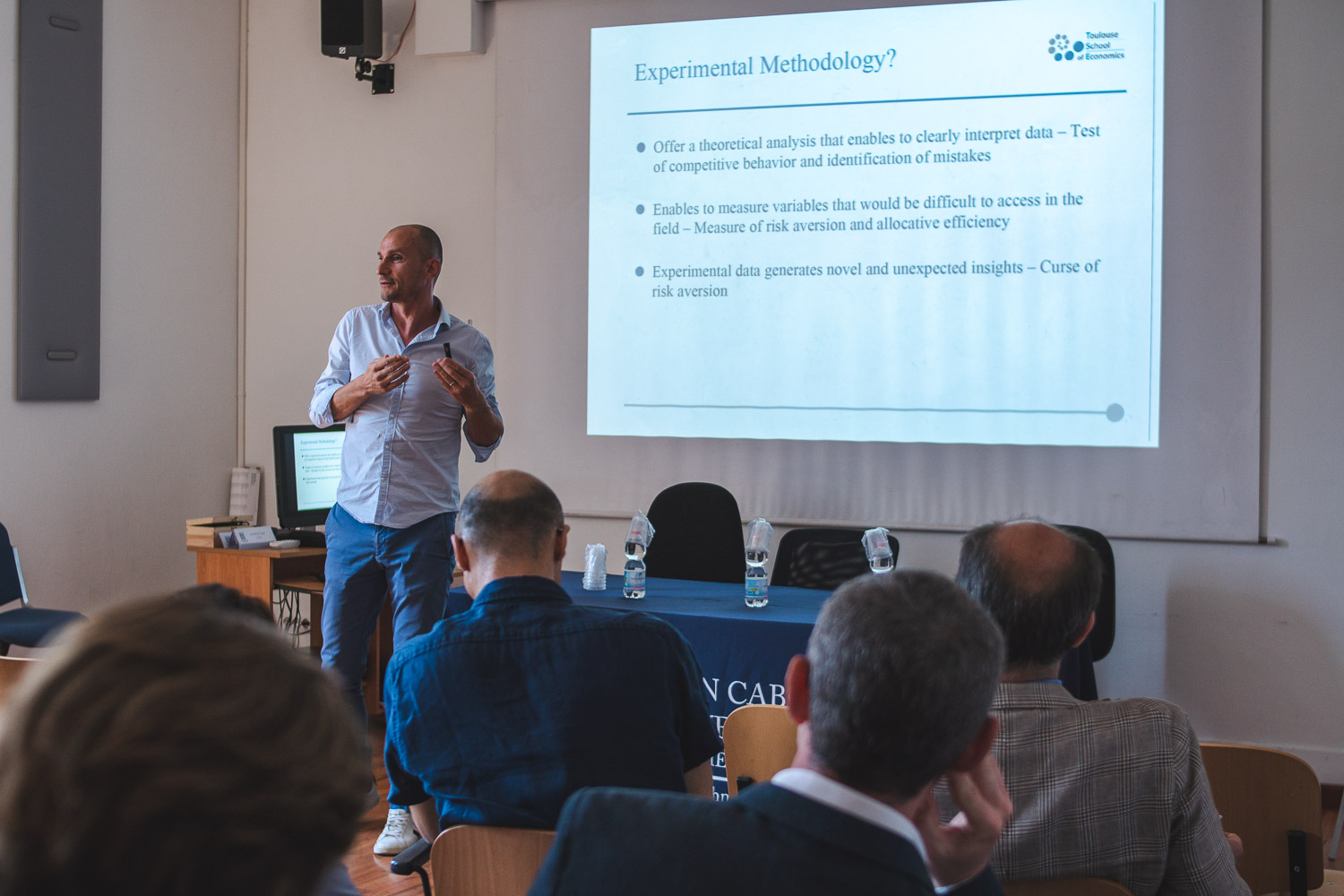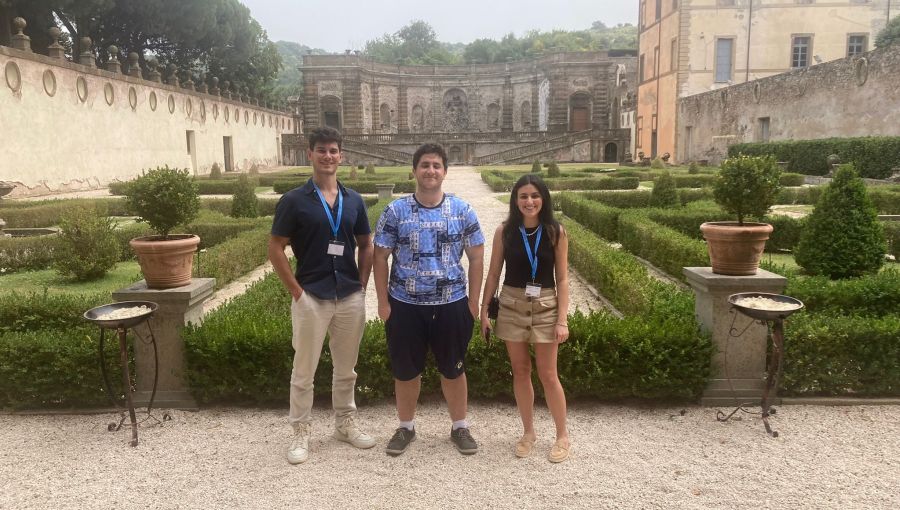Theory and Experiments in Macroeconomics and Finance: JCU Hosts International Workshop
The Department of Economics organized an international workshop titled “Theory and Experiments in Macroeconomics and Finance” on June 19, 2019. The workshop was the department’s first international event. The theme was chosen to reflect recent evolutions in the fields of macroeconomics and finance that came about in part in response to the financial crisis of 2008. The use of experiments in this area can help to shed light on human behavior and interactions between agents that are difficult to be observed or analyzed in the real economy.
The speakers came from both outside Italy as well as from universities in Rome. Dr. Gabriele Camera, a world-renowned expert in the field from Chapman University was the keynote speaker. Professor Camera provided the audience with a fascinating perspective on money and currency systems and an overview of some of the laboratory studies he has conducted to look into the role of money.
Dr. Elena Asparouhova from University of Utah discussed the process by which prices are determined in continuous double auctions and its implications. Professor Asparouhova began her talk by presenting several studies and stressed the need for a theory of disequilibrium and dynamic behavior that is consistent with what has been observed in the laboratory. The framework that was proposed can predict and explain off equilibrium pricing and allocations and shed light on the process of price adjustment.
Dr. Daniela Di Cagno from LUISS Guido Carli, Rome, questioned the assumption that more transparent markets are necessarily more efficient. The experimental study professor Di Cagno presented focused on anonymity in the financial markets, specifically at how information about other traders’ knowledge can affect important market metrics. The results show that both price discovery and price efficiency are better when traders do not know how much information customers have.
Dr. Sébastien Pouget from University of Toulouse 1 Capitole discussed asset pricing in the context of risk sharing and presented a laboratory experiment in which the markets are competitive and information across participants is symmetrical. The results professor Pouget presented suggest that markets fail to allocate the risk efficiently exactly when subjects need insurance the most – a phenomenon he calls the curse of risk aversion.
Dr. Anna Conte from University of Rome “La Sapienza” argued for a more careful analysis of heterogeneity when using experimental data, which can also feedback into the theoretical models being used. Professor Conte presented an empirical approach contrasting the use of two mixture models with applications to the analysis of choice under risk, of the formation of social networks and respectively of preferences for redistribution.
Dr. Federico Belotti from University of Rome “Tor Vergata” looked at what determines individuals to withdraw money from a bank with policy relevancy in the context of bank runs. Professor Belotti presented an experimental design in which there was variation in the size of the bank and in the information participants had about the knowledge of fellow depositors. The results show that expectations about how much money other participants will withdraw and the size of the bank shape the withdrawal decision, whereas information about the other participants’ knowledge is not a significant factor.
Each presentation was followed by discussions. The audience included professors from multiple universities in Rome, experts in the field including from the central bank of Italy and students – some enrolled in PhD or master programs in the US and in Italy and some of the recent graduates from JCU. The event presented an opportunity for a fruitful exchange of ideas and for opening avenues for further collaborations.






